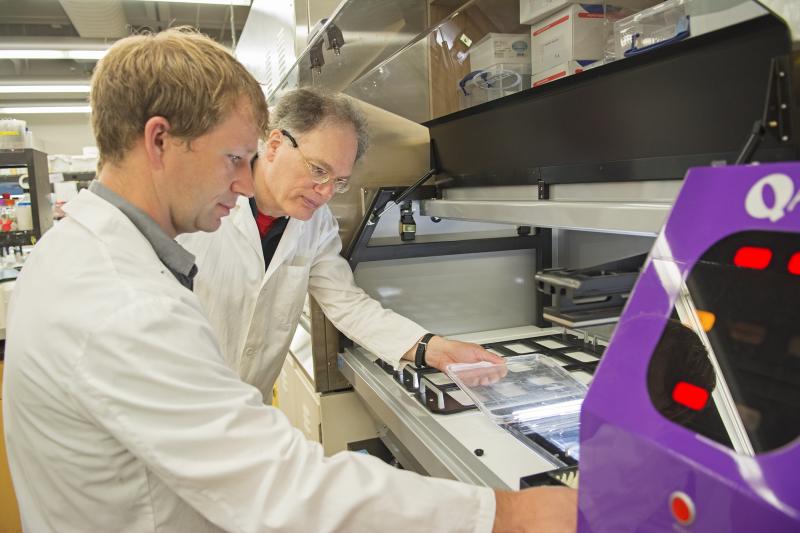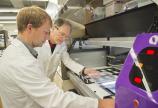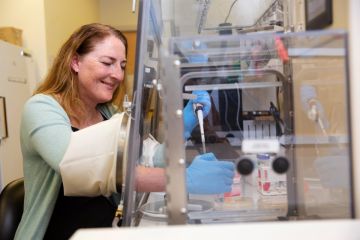“Frosty genes” technology awarded US patent

The most effective vaccines against disease are those that expose our immune systems to live pathogens. But how do we do that without causing the very disease we’re trying to avoid?
Two University of Victoria researchers may have found a way using bacteria from the frigid waters of the Arctic. The innovative technology they’ve developed over the last decade has just been awarded a US patent.
The technology—developed by former graduate student Barry Duplantis and UVic microbiologist Francis Nano—substitutes cold-loving genes from Arctic bacteria for the genes of warmth-loving, disease-carrying bacteria.
The strategy is to create a strain of bacteria that can replicate in a person or animal’s skin, but not penetrate into deeper, warmer tissue to cause infection. In this way, the body is safely exposed to the pathogen, providing future immunity from the disease.
Nano, who studies bacterial pathogens, had always wondered how bacteria survive in extreme Arctic cold. In the late ‘90s, he asked a Canadian polar expedition to send him some water samples from the Arctic Ocean.
Several thermoses full of Arctic ocean water later, Nano managed to isolate several strains of bacteria. One of them, Shewanella frigidimarina, was a cold-water bacterium found in icy waters around the world.
“One of the strange things about cold-water bacteria is that they can only grow in cold water,” says Nano, whose team has since identified a number of genes and proteins from Arctic bacteria that make them sensitive to warm temperatures.
“We look for temperature inactivation relevant to human body temperatures, but most often we’re looking for proteins that are inactivated at 37 C.”
The new technology can be applied to vaccines for almost any disease caused by a bacterium, such as tuberculosis, drug-resistant staph infections and even plague. Nano and his team are currently working with a number of bacteria, including Salmonella, which causes one of the most common food-borne illnesses in the world.
The newly patented technology is at the heart of a spinoff company headed by Duplantis. He formed DuVax Vaccines and Reagents Inc. in 2011 to further develop and market the technology to pharmaceutical companies in human and animal health.
“Fran’s idea for a vaccine technology is why I began graduate school and it was my goal from the outset that if we succeeded I would attempt to commercialize it,” says Duplantis.
In addition to the US patent, the technology is patented in a number of other countries including Canada, he adds. “Without a solid intellectual property position it would be impossible for a small start-up biotechnology company like this to get off the ground.”
For more information on DuVax, contact barry.duplantis@duvax.net or 250-858-2115.
Photos
In this story
Keywords: disease, biotechnology, research
People: Barry Duplantis, Francis Nano





